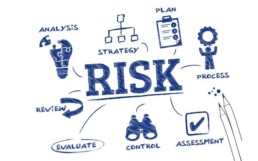From Risk Management to Risk Base Thinking: EHS management systems and Models Legislative Decree 231/2001
With its team of qualified Auditors, 3p Safety is able to provide advice for the development, implementation, certification and maintenance of management systems according to the following standards:
- BS OHSAS 18001, UNI INAIL and ISO 45001 – Health and Safety Management System (HSMS)
- ISO 14001 – Environmental Management System (EMS)
- ISO 50001- Energy Management Systems
- ISO 9001 – Quality Management System
- SA 8000 and CSR – Corporate Social Responsibility
- Organisational Models Legislative Decree 231/01 – Company «criminal» risk management system;

We guide companies to innovate the EHS processes from a Risk Management and Risk Base Thinking perspective
Companies must constantly innovate their production processes to adapt to the market and regulatory context and keep up with the constantly-changing, new technologies.
The Management Systems for Safety, Environment, Energy, Social Responsibility and the 231 models for company risks are essential requirements to be able to operate on the European and international market.
Our 231 services
Legislative Decree 231/2001 introduced the concept of administrative responsibility of legal persons for crimes committed by directors, managers or employees subject to their supervision, linking heavy financial and disqualification penalties to it.
3p Safety is able to support companies with a team of lawyers and technicians for the following services:
- Initial audit with company management
- Assessment of the adequacy of the existing model
- Mapping and risks analysis (crimes)
- Organisational model development
- Participation with own representatives in the Supervisory Body (ODV)
Advantages from adopting the 231 model
There are many advantages from introducing the organizational model:
- avoids the risk of financial and disqualification penalties
- protects the investment of partners and shareholders, in relation to the financial damage mentioned above
- allows companies to rationalise processes in order to minimise risk and manage the company well
- allows it to enter in markets that require this model
- generates an advantage in terms of image and competitiveness , based on an ethical integrity company policy
- facilitates access to credit
- facilitates and integrates the controls of Statutory Auditors
The extension of the organizational model to safety management (as provided for in art. 30 of Legislative Decree 81/2008), allows the company to make the obligations already provided for by current legislation systematic and organized with particular attention for prevention and monitoring.


